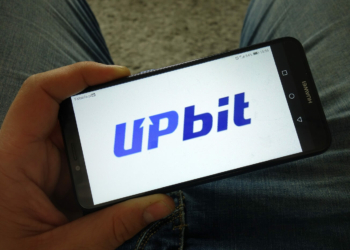A home is usually the largest single investment that someone makes, and most people need a mortgage to finance the purchase. The type of mortgage you get influences your rate, terms, qualification requirements, and ultimately the type of home you can afford. FHA loans and conventional loans are two of the most common mortgages.
FHA loans are backed by the Federal Housing Administration (FHA) and offered by FHA-approved lenders. These loans are generally easier to qualify for than conventional loans and have smaller down payment requirements. However, you’ll owe mortgage insurance premiums (MIPs) for at least 11 years—potentially as long as you have a loan balance.
Unlike FHA loans, conventional loans are not insured or guaranteed by a federal agency. These loans have stricter lending standards and larger down payment requirements than FHA loans. But private mortgage insurance (PMI) is required only if you put down less than 20%. If that happens, you can ask your lender to cancel PMI when your balance drops to 80% of the home’s original value.
Key Takeaways
- FHA loans are backed by the Federal Housing Administration and offered by FHA-approved lenders.
- FHA loans allow smaller down payments (as low as 3.5%) and lower credit scores than most conventional loans.
- Unlike FHA loans, conventional loans are not insured or guaranteed by the government.
- Conventional loans typically cost less than FHA loans, but they can be harder to qualify for.
- Mortgage insurance is mandatory with FHA loans; you can avoid it on a conventional loan by putting down at least 20%.
Click Play to Learn the Differences Between FHA and Conventional Loans
Alison Czinkota / Investopedia
FHA Loans vs. Conventional Loans
FHA loans and conventional loans allow borrowers to finance home purchases, but they aren’t the same. Here’s a rundown of the key differences to consider when finding a mortgage for your next property.
Credit Scores
An FHA applicant can qualify with a credit score as low as 500, though 580 is preferable (and many FHA-approved lenders won’t go below it). Those that do have more stringent bars for your down payment, debt-to-income (DTI) ratio, and housing expense ratio. It will also be a subprime loan, causing you to have a considerably higher annual percentage rate (APR) than for either an FHA loan with a 580 credit score or a conventional loan.
To qualify for a conventional loan, you generally need a credit score of 620 or higher.
Minimum Down Payments
FHA loans require a 3.5% down payment if your credit score is 580 or higher. However, those with scores from 500 to 579 must pay 10%. FHA loans can be used only to buy a principal residence.
First-time homebuyers can get a conventional loan with a down payment of as little as 3% of the purchase price. To forego paying mortgage insurance, though, you need to put down 20%. If you aren’t buying your first house and make less than 80% of the median income in the area where you are purchasing the home, the lower limit goes up to 5%. If you buy a second home, it leaps to 10%, and it goes to 15% if you buy a multiple-family dwelling.
Debt-to-Income (DTI) Ratios
Your debt-to-income (DTI) ratio compares your income with your debts. Lenders look at this number to determine if you can afford to buy a home and take on a mortgage payment.
To determine your DTI, start by adding up all your fixed monthly expenses, including your:
- Rent or mortgage payment
- Minimum monthly credit card payments
- Student, auto, and other loan payments
- Any other recurring fixed costs, such as homeowners association (HOA) fees and alimony
Next, divide the total by your gross monthly income to come up with the DTI.
With an FHA loan, your DTI ratio can’t be higher than 45% if your credit score is below 580. Most conventional and FHA mortgages require a DTI ratio of 50% or less.
Mortgage Insurance
Depending on your mortgage terms and the size of your down payment, you might have to pay mortgage insurance. Unlike other types of insurance, mortgage insurance does not protect you. Instead, it protects the lender if you stop making payments.
FHA loan borrowers have to pay mandatory mortgage insurance premiums (MIPs), regardless of the down payment amount. There’s an up-front payment, which can be rolled into the loan and paid throughout its life, plus monthly premiums. Borrowers who put down 10% or more pay these premiums for 11 years. Anyone who makes a down payment of less than 10% must make these premium payments for the duration of their mortgage.
With conventional loans, you have to pay for private mortgage insurance (PMI) if you put down less than 20%. You can ask your lender to cancel PMI when your mortgage balance is scheduled to fall to 80% of the original value of your home (the contract sales price or the appraised value when you bought the home). Otherwise, your lender must remove PMI when your balance drops to 78%.
Important
Upfront fees on Fannie Mae and Freddie Mac home loans changed in May 2023. Fees were increased for homebuyers with higher credit scores, such as 740 or higher, while they were decreased for homebuyers with lower credit scores, such as those below 640. Another change: Your down payment will influence what your fee is. The higher your down payment, the lower your fees, though it will still depend on your credit score. Fannie Mae provides the Loan-Level Price Adjustments on its website.
Loan Limits
Both types of loans limit how much you can borrow. For 2022, the FHA loan limit is $420,680 in low-cost areas and $970,800 in higher-priced markets. Conventional loans are subject to limits set by the Federal Housing Finance Agency (FHFA). For 2022, that’s $647,200 for most of the United States.
More About FHA Loans
FHA loans are federally insured and issued by FHA-approved lenders, including banks, credit unions, and other lending companies. FHA loans are intended for borrowers with limited savings or lower credit scores.
FHA loans can be used to buy or refinance single-family houses, multifamily homes with up to four units, condominiums, and certain manufactured and mobile homes. There are also specific categories of FHA loans that can be used for new construction or to finance the renovation of an existing home.
Because FHA loans are federally insured, these lenders can offer more favorable terms, including lower interest rates, to borrowers who might not otherwise qualify for a home loan. This means that it’s also easier to qualify for an FHA loan than a conventional one.
The qualifying standards of FHA loans make home buying more accessible to many people. You can borrow up to 96.5% of the value of a home with an FHA loan. FHA mortgage applicants with credit scores as low as 580 may be approved for a home loan if they can cover the 3.5% down payment requirement. Those whose credit scores fall below 580 may still qualify but generally need to put down a minimum of 10% of the purchase price. Many lenders require FHA mortgage applicants to have credit scores from 620 to 640 for approval.
FHA loans may also have additional closing costs that aren’t required by conventional loans.
More About Conventional Loans
A conventional loan is a mortgage that is not backed by a government agency. Conventional loans are originated and serviced by private mortgage lenders, such as banks, credit unions, and other financial institutions.
Conventional loans present the most risk for lenders, as the federal government does not insure them. For this reason, lenders extend conventional mortgages to applicants with the strongest financial profiles. Conventional down payment requirements range from 3% to 40%, depending on the mortgage product.
To qualify for a conventional loan, consumers typically must have stellar credit reports with no significant blemishes and credit scores of at least 680. Conventional loan interest rates vary depending on the amount of the down payment, the consumer’s choice of mortgage product, and current market conditions. Most conventional loans come with fixed interest rates, which means that the rate never changes throughout the life of the loan. Borrowers are able to refinance if rates change.
Conventional loans can be divided into two categories: conforming and nonconforming. The former follow the lending standards set forth by the Federal National Mortgage Association (Fannie Mae) and the Federal Home Loan Mortgage Corp. (Freddie Mac).
| FHA Loan vs. Conventional Loan | |
|---|---|
| FHA Loans | Conventional Loans |
| Lower credit score to qualify | Stricter lending requirements |
| Mandatory mortgage insurance | Mortgage insurance required if down payment is less than 20% |
| Down payment of at least 3.5% | Down payment ranges from 3% to 20% |
| Loans backed by the U.S. government | Loans not backed by the U.S. government |
| Can be used only to finance a primary residence | Can finance a primary residence, vacation home, rental property, etc. |
For a conventional loan, PMI can be canceled once a borrower pays down enough of the mortgage’s principal.
Pros and Cons of FHA Loans
-
Lower down payment
-
Easier lending standards
-
Lower interest rates
-
Mandatory mortgage insurance
-
For primary residences only
-
Restrictive loan maximums
Pros and Cons of Conventional Loans
-
Mortgage insurance depends on equity
-
Not limited to primary residences
-
Opportunity to borrow more
-
Stricter lending requirements
-
Need higher credit score to qualify
-
Need lower debt-to-income (DTI) ratio
Other Government-Backed Loans
FHA loans are not the only type of U.S. government-backed loans. There are two other government agency-insured loan programs: Veterans Affairs (VA) loans and USDA loans.
VA loans are backed by the U.S. Department of Veterans Affairs. These loans are available to qualified members of the armed services, their spouses, and other beneficiaries. VA loans don’t require a down payment and typically don’t charge mortgage insurance.
Loans are available for borrowers in rural areas through the U.S. Department of Agriculture (USDA). They are intended for low- to moderate-income homebuyers and don’t require a down payment. There may also be more flexibility with credit score requirements.
What is a Federal Housing Administration (FHA) loan?
Federal Housing Administration (FHA) loans are guaranteed by the U.S. government and designed for homeowners who may have lower-than-average credit scores and lack the funds for a big down payment. They require a lower minimum down payment and a lower credit score than many conventional loans. FHA home loans are issued by FHA-approved lenders.
What is a conventional loan?
Conventional loans are home loans that are not secured by the U.S. government. Borrowers with established and excellent credit on solid financial footing typically qualify for conventional mortgages.
What credit scores are needed for FHA and conventional loans?
To qualify for a conventional loan, you’ll need a credit score of at least 680. Borrowers with credit scores as low as 580 may be approved for an FHA loan. If your credit score is lower, you may still qualify, but you will need a minimum of 10% of the home’s value for a down payment.
The Bottom Line
Deciding between an FHA loan and a conventional loan depends on your financial situation. An FHA loan may be a better option if you have a lower credit score, a higher DTI ratio, or less money saved for a down payment. On the other hand, a conventional loan may work better if your finances are sound and you can qualify for favorable loan terms.















